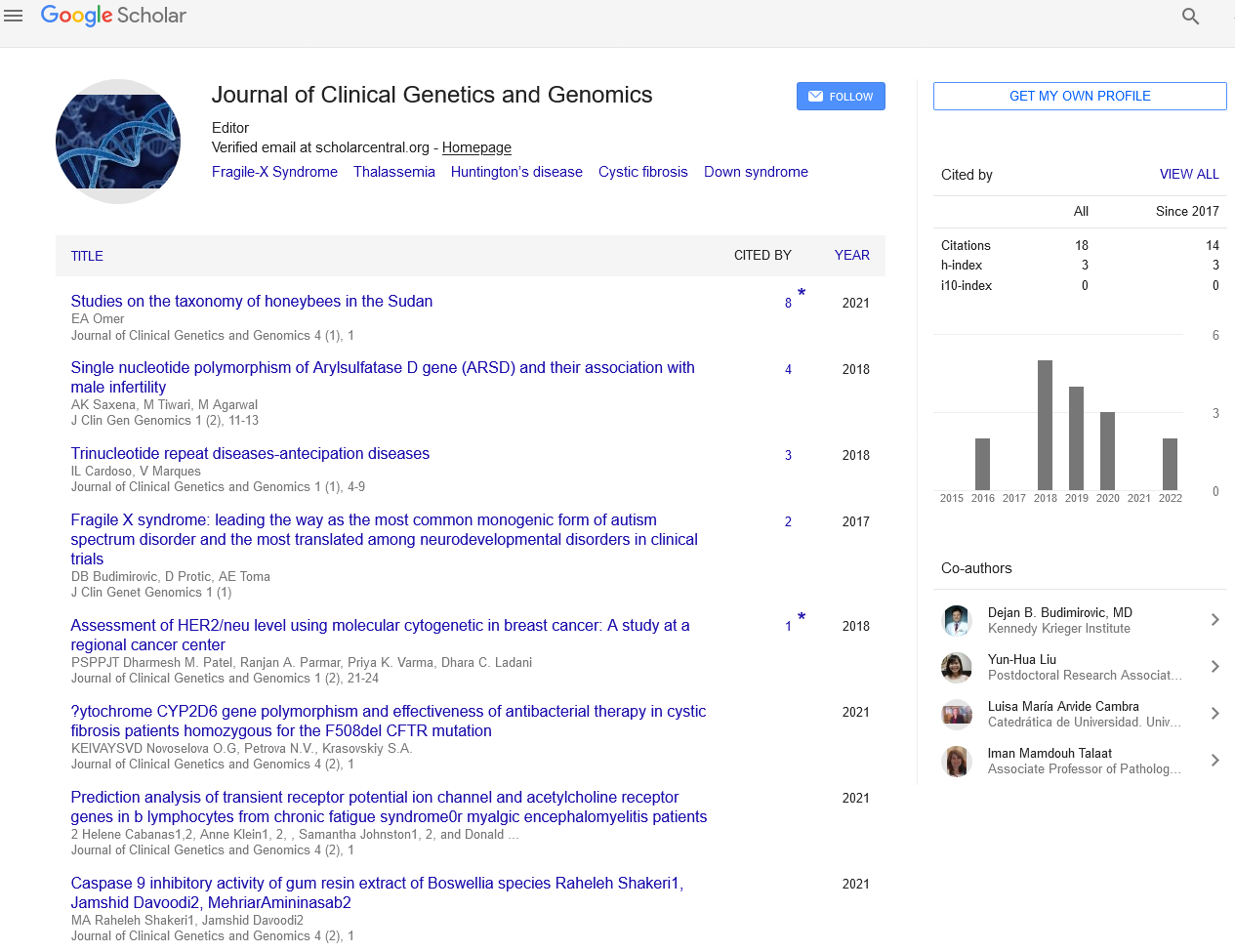
Sign up for email alert when new content gets added: Sign up
Abstract
The brugada syndrome is a rare arrhythmia disorder with complex inheritance
Author(s): Genesis Stewart*For the past 10 years, the enormous variety of the human genome has been exposed by using new sequencing technology to examine hundreds of entire exomes. Therefore, extreme care should be exercised to prevent misunderstanding when linking uncommon genetic variations to illness vulnerability. An uncommon genetic arrhythmia disorder called Brugada Syndrome (BrS) puts young adults at a significant risk of dying suddenly from cardiac arrest. Incomplete penetrance and the autosomal dominant mode of transmission have long been associated with mendelian inheritance in families. The 23 genes that were previously linked to the disease have all been found through a candidate gene technique, with the exception of one. So far, only a few uncommon SCN5A gene coding variations have been found to be strongly linked to the condition thus far. The complicated pattern of inheritance of BrS is illustrated by genotype/phenotype investigations done in families with SCN5A mutations, though. The recent discovery of common polymorphic alleles that are highly related to disease risk has verified this genetic complexity. Due to the implications of both common and rare variations on BrS susceptibility, a good genetic model for BrS predisposition should be defined before using molecular diagnosis. Although there is still a long way to go before BrS can be treated specifically for each patient, the significant phenotypic variability shown in familial variants of the disease may have some connection to this particular genetic architecture.




